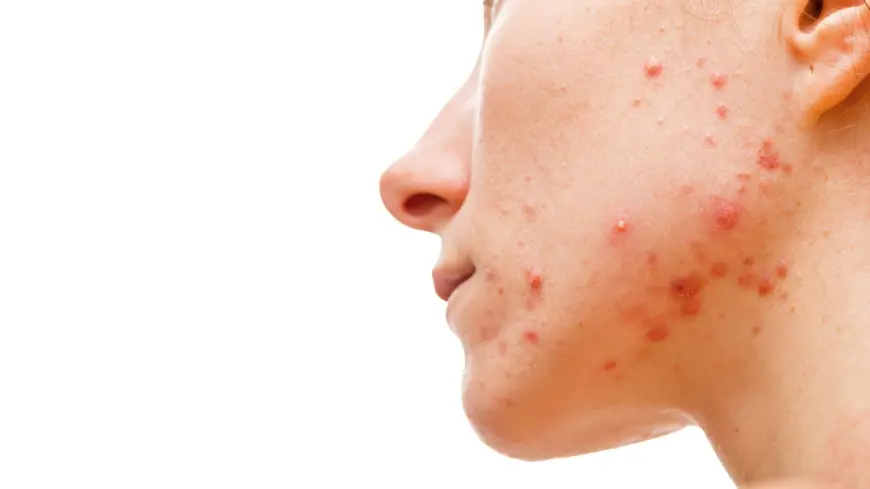Acne Solutions Unveiled: Your Path to Clear, Healthy Skin
Best Acne Treatment in Dubai UAE & Abu Dhabi can be done with lasers, injections, light therapy, and chemical peels at the Royal Clinic. Call now to make an appointment.

Acne is a common skin condition that affects millions of people worldwide, causing physical discomfort and emotional stress. While it’s often associated with adolescence, acne can persist into adulthood or develop later in life. Fortunately, a wide range of solutions is available to help manage and treat acne effectively. Here, we unveil the path to achieving clear, healthy skin by exploring the causes, prevention strategies, and treatment options for Acne Treatment Dubai.
Understanding Acne: Causes and Triggers:
Acne develops when hair follicles become clogged with oil, dead skin cells, and bacteria. Understanding the root causes is crucial for effective treatment. Here are some common factors that contribute to acne:
Hormonal Fluctuations:
Hormonal changes, particularly during puberty, menstruation, pregnancy, or menopause, can increase oil production in the skin, leading to breakouts.
Diet and Nutrition:
Certain foods, such as those high in sugar or dairy, may exacerbate acne in some individuals. Maintaining a balanced diet can help improve skin health.
Stress and Lifestyle:
Stress triggers the release of cortisol, which can increase oil production and inflammation, worsening acne.
Skincare Products:
Using products that are not labeled as “non-comedogenic” can clog pores and lead to breakouts.
Genetic Predisposition:
If your parents had acne, you may be more likely to develop it as well due to genetic factors.
Prevention Strategies for Clearer Skin:
Prevention plays a vital role in managing acne. Adopting a healthy skincare routine and lifestyle can minimize breakouts and improve skin clarity.
Cleanse Gently:
Wash your face twice a day with a mild cleanser to remove excess oil, dirt, and makeup. Avoid harsh scrubbing, which can irritate the skin.
Choose the Right Products:
Use non-comedogenic skincare and makeup products to prevent clogged pores. Look for ingredients like salicylic acid or benzoyl peroxide.
Stay Hydrated:
Drinking plenty of water helps flush out toxins and keeps your skin hydrated, reducing the likelihood of breakouts.
Avoid Touching Your Face:
Touching your face with unwashed hands can transfer bacteria to your skin, increasing the risk of acne.
Manage Stress:
Practice stress-relief techniques such as yoga, meditation, or exercise to reduce cortisol levels and inflammation.
Effective Acne Treatments:
Acne treatments range from over-the-counter solutions to professional dermatological procedures. The choice depends on the severity of your condition and your skin’s needs.
Over-the-Counter Products:
-
Salicylic Acid: Helps unclog pores and reduce inflammation.
-
Benzoyl Peroxide: Kills acne-causing bacteria and removes excess oil.
-
Retinoids: Promote cell turnover and prevent clogged pores.
Prescription Medications:
For more severe acne, dermatologists may prescribe medications such as:
-
Oral Antibiotics: Reduce bacteria and inflammation.
-
Topical Antibiotics: Target specific areas of infection.
-
Isotretinoin: A potent oral medication for severe, cystic acne.
-
Hormonal Therapy: Birth control pills or anti-androgen medications to regulate hormones.
Professional Treatments:
Dermatologists offer advanced treatments for stubborn acne and scarring:
-
Chemical Peels: Exfoliate the skin to unclog pores and improve texture.
-
Laser Therapy: Targets acne-causing bacteria and reduces inflammation.
-
Microneedling: Stimulates collagen production to heal scars.
-
Drainage and Extraction: Removes large cysts or blackheads safely.
Natural Remedies:
While natural remedies may not replace medical treatments, they can complement your skincare routine:
-
Tea Tree Oil: Has antibacterial properties to combat acne-causing bacteria.
-
Aloe Vera: Soothes inflammation and promotes healing.
-
Green Tea Extracts: Contains antioxidants that reduce sebum production.
Addressing Acne Scars:
Once acne clears up, scars may remain, affecting self-confidence. Effective treatments are available to minimize their appearance:
Dermal Fillers:
Fillers can plump up depressed scars, creating a smoother skin surface.
Fractional Laser Therapy:
This treatment targets deeper layers of the skin to promote collagen production and improve scar texture.
Chemical Peels:
Regular peels can help reduce discoloration and refine the skin’s surface.
Microneedling:
Microneedling encourages the skin’s natural healing process to minimize scar appearance.
Building a Personalized Skincare Routine:
Achieving clear, healthy skin requires a consistent and personalized skincare routine. Consult a dermatologist to identify the best products and treatments for your skin type and concerns.
Key Steps in Your Routine:
-
Cleanse: Remove impurities with a gentle cleanser.
-
Treat: Apply serums or spot treatments containing acne-fighting ingredients.
-
Moisturize: Hydrate your skin with a non-comedogenic moisturizer.
-
Protect: Use sunscreen daily to shield your skin from UV damage.
Embracing a Holistic Approach:
Clear skin is not just about topical treatments; it’s also about overall wellness. A holistic approach to skincare includes:
-
Balanced Diet: Incorporate fruits, vegetables, and omega-3 fatty acids.
-
Regular Exercise: Promotes circulation and stress reduction.
-
Adequate Sleep: Helps regulate hormone levels and repair skin cells.
-
Positive Mindset: Confidence and self-care go hand in hand.
When to See a Dermatologist:
If over-the-counter products and home remedies are not yielding results, it’s time to consult a dermatologist. Early intervention can prevent worsening of acne and reduce the risk of scarring. Your dermatologist can customize a treatment plan based on your unique needs.
Conclusion:
Managing Acne Treatment is a journey that requires patience, persistence, and a tailored approach. By understanding its causes, adopting preventive measures, and exploring effective treatments, you can achieve clear, healthy skin. Remember, every skin type is different, so it’s essential to find what works best for you. With the right guidance and consistent care, your path to glowing skin is within reach.
What's Your Reaction?
 Like
0
Like
0
 Dislike
0
Dislike
0
 Love
0
Love
0
 Funny
0
Funny
0
 Angry
0
Angry
0
 Sad
0
Sad
0
 Wow
0
Wow
0




















































